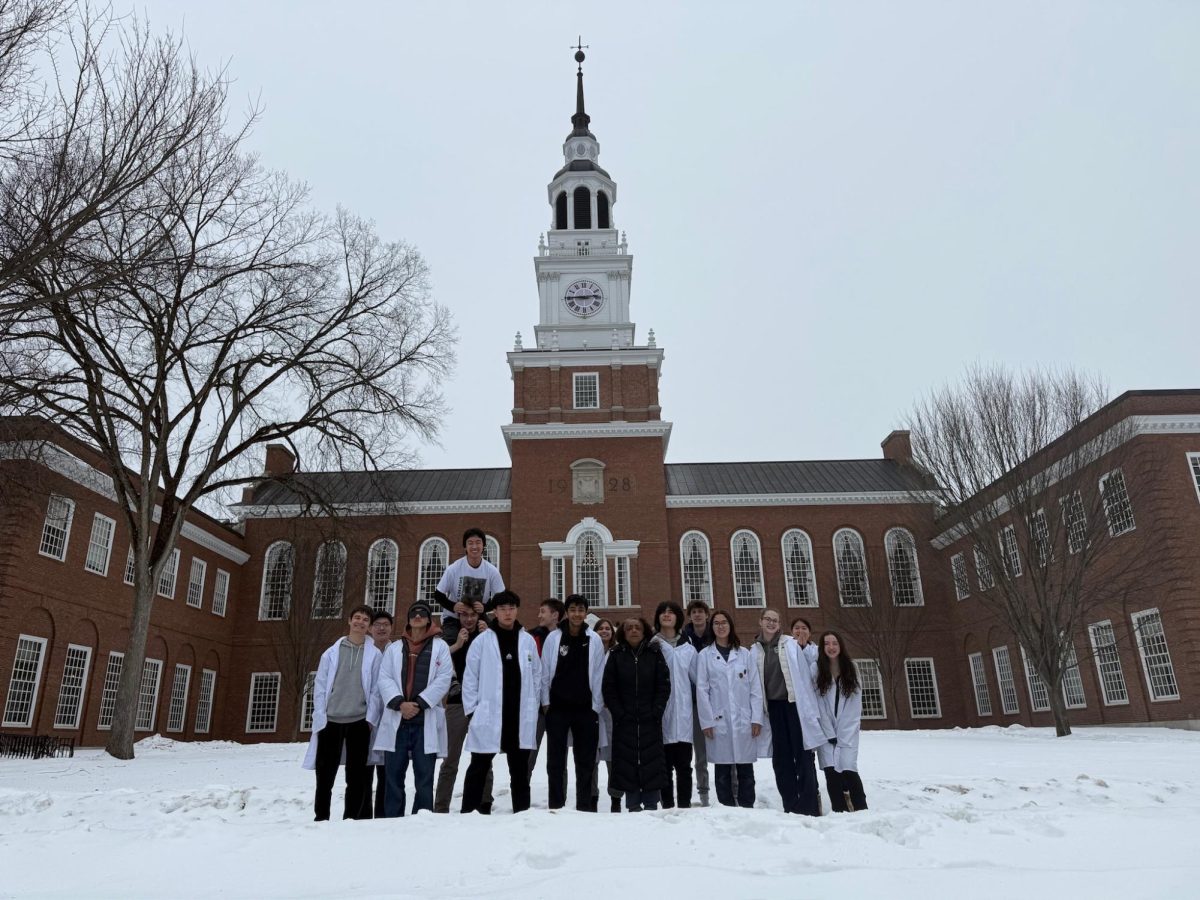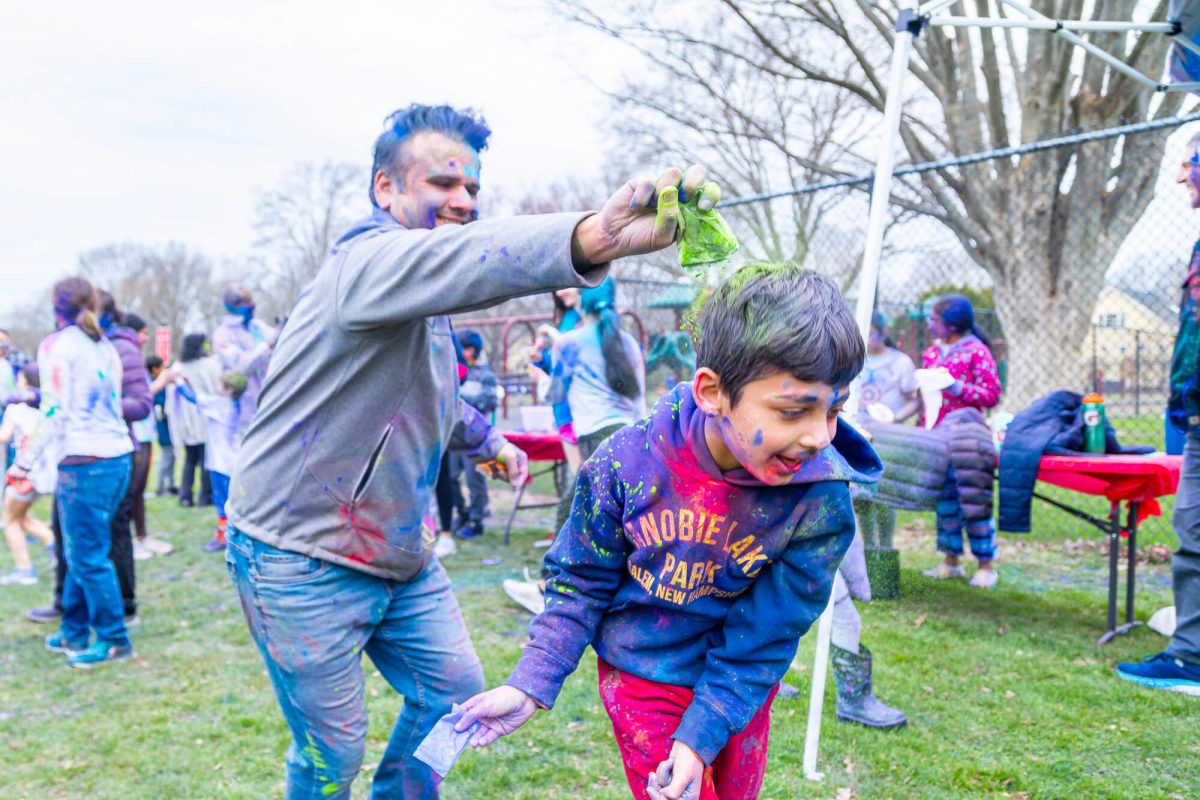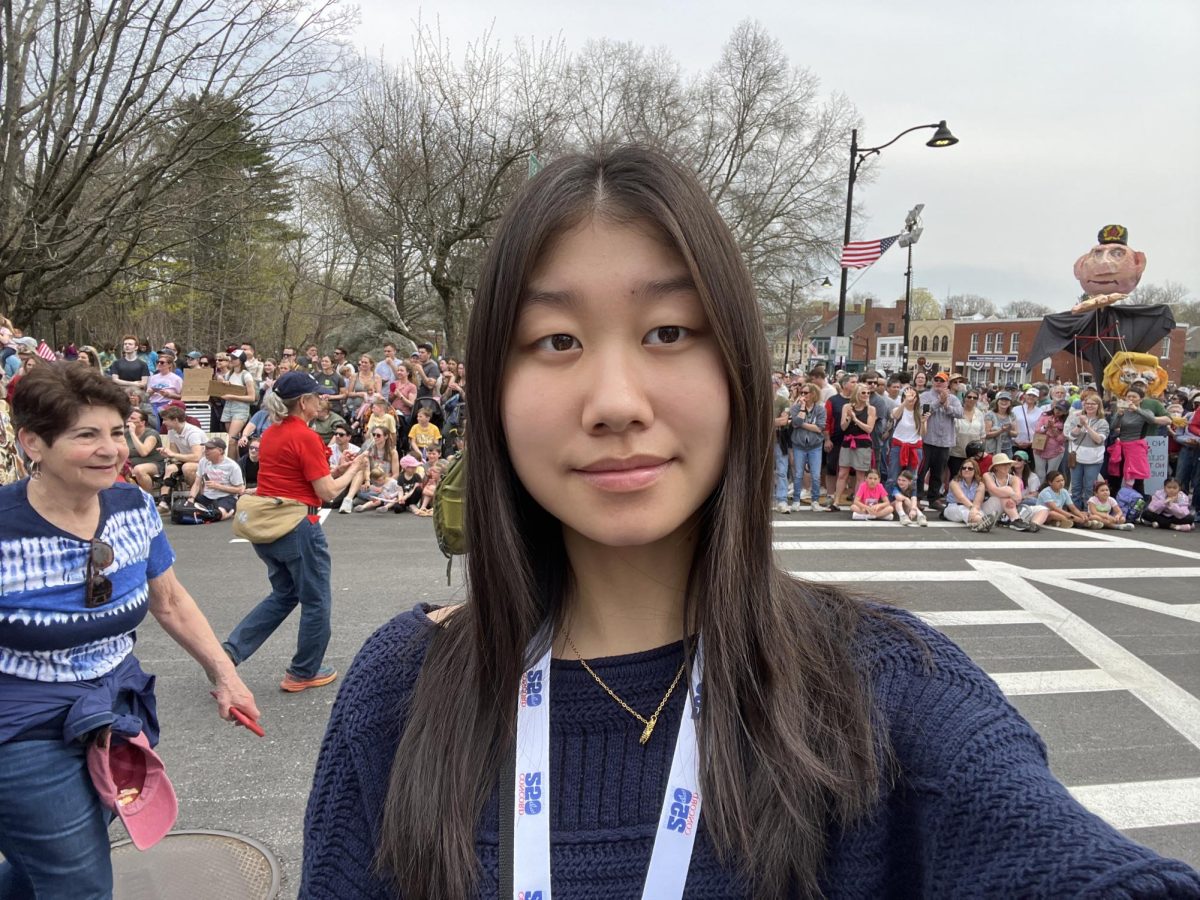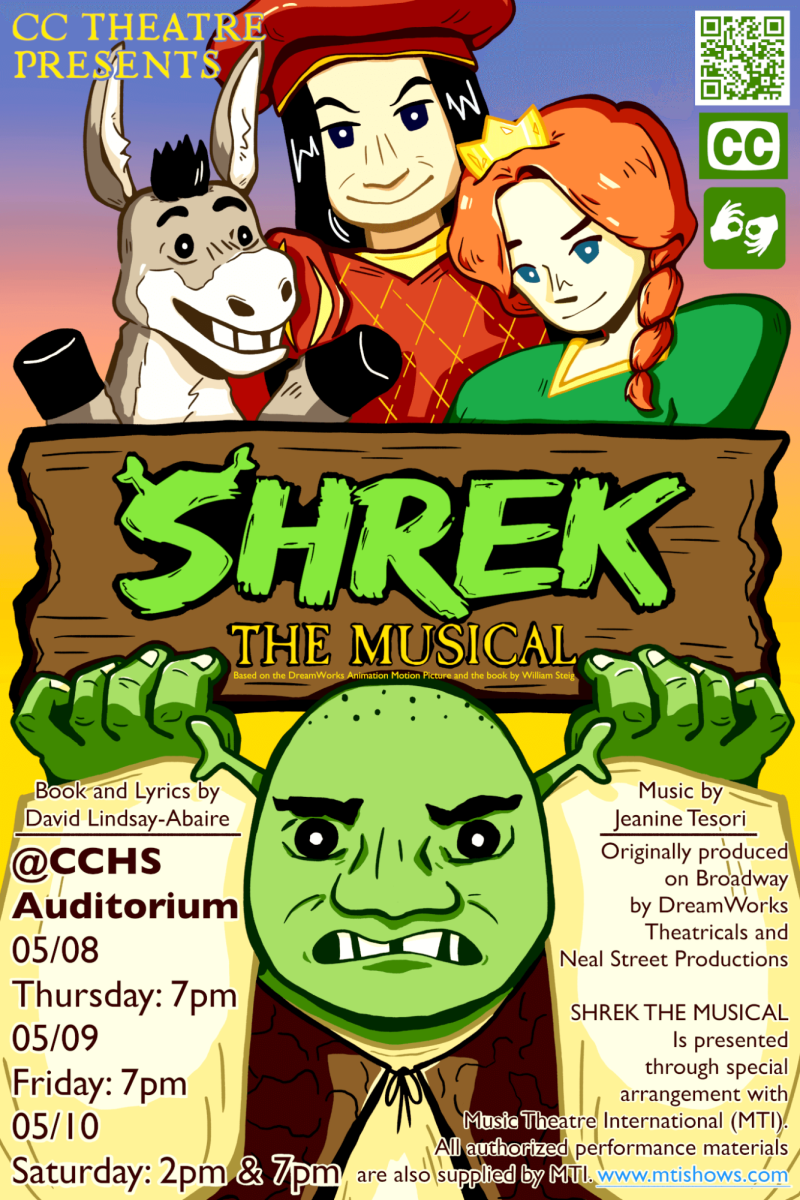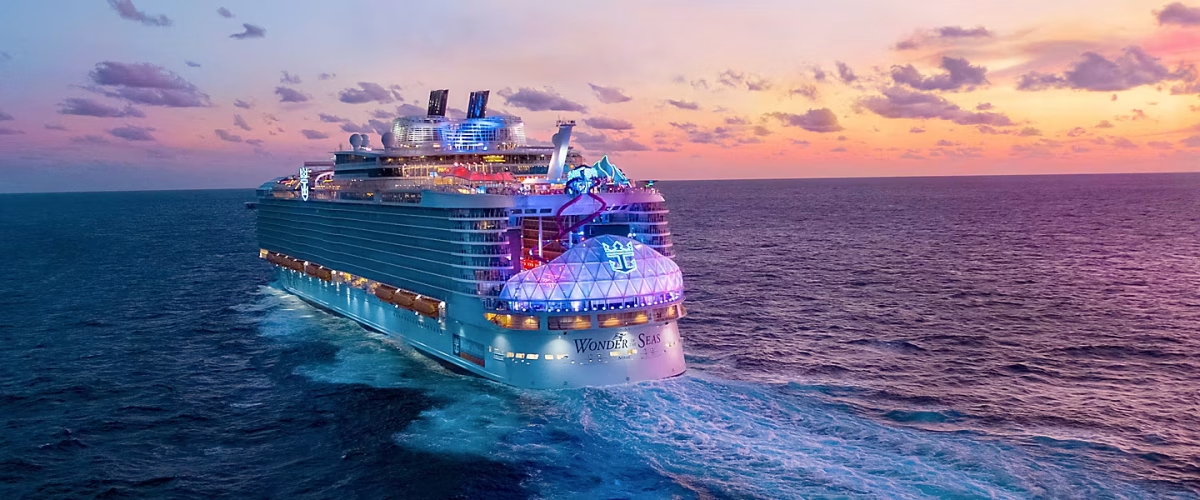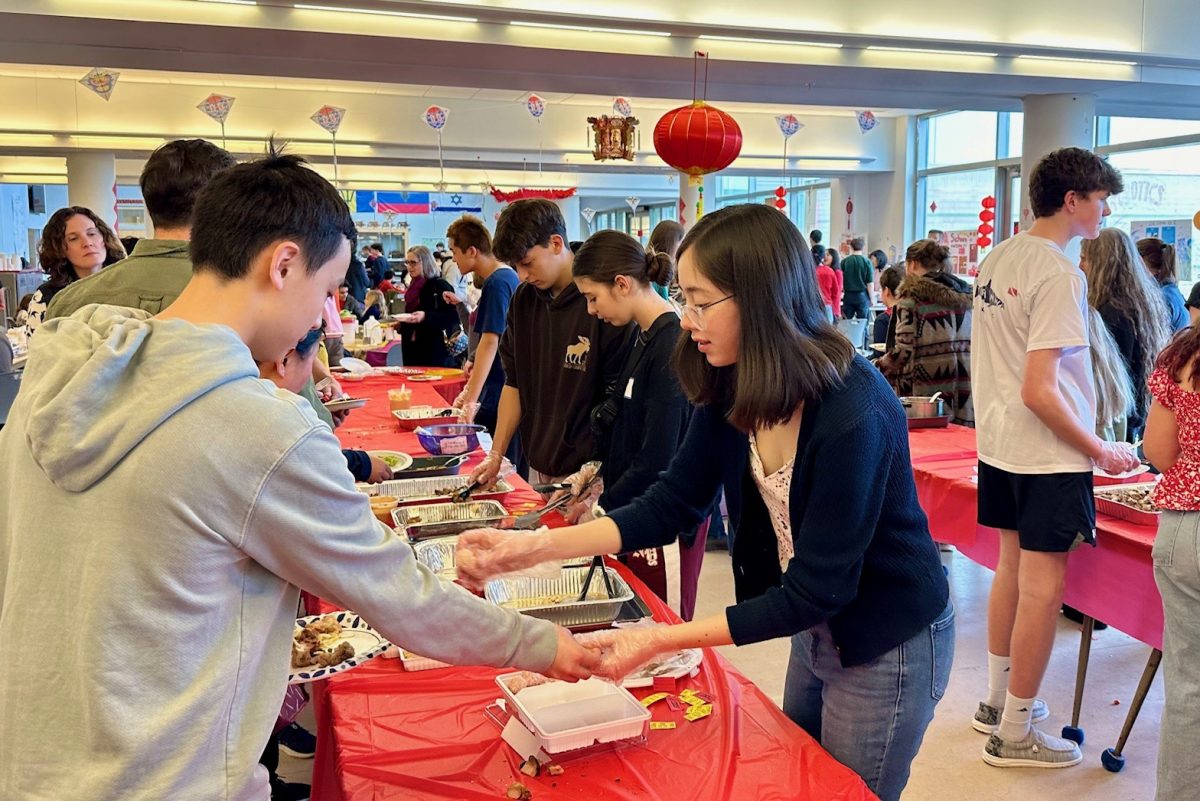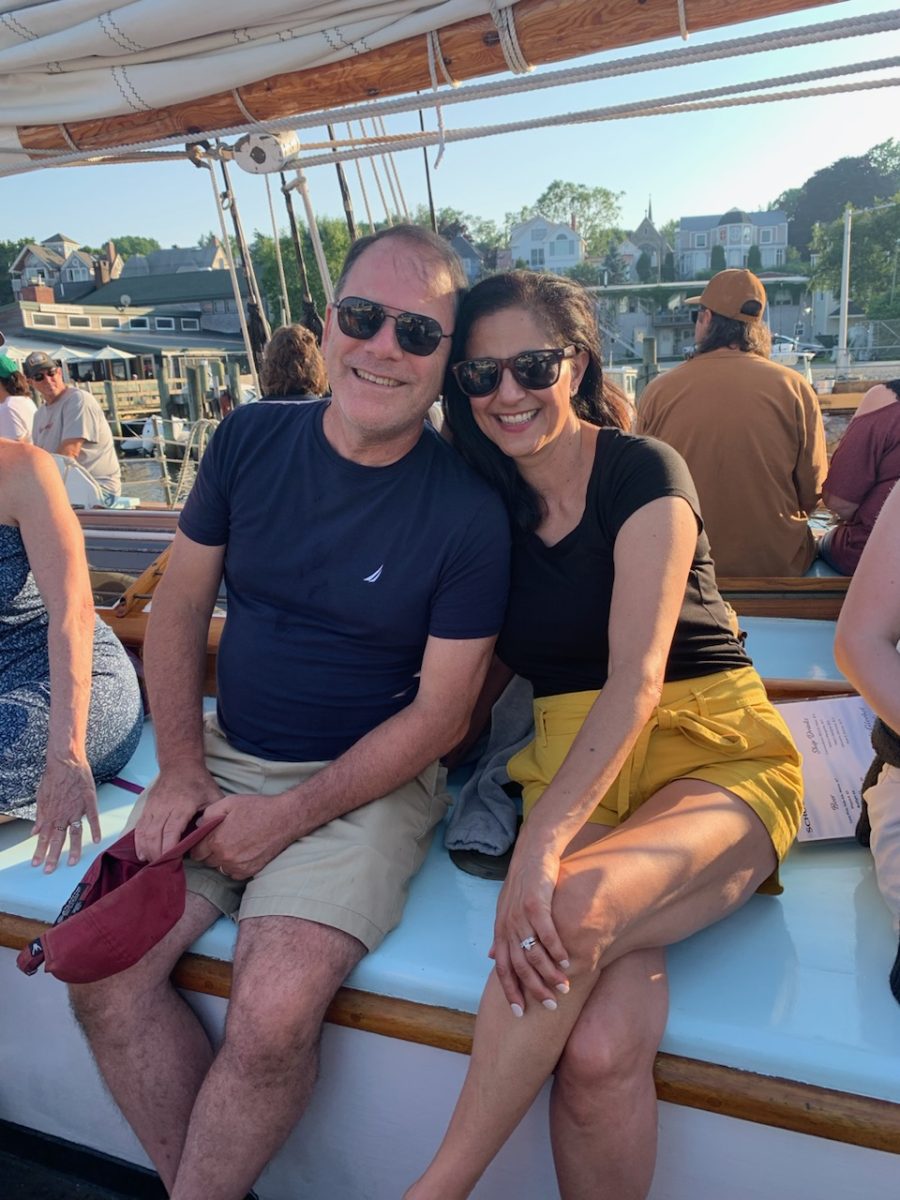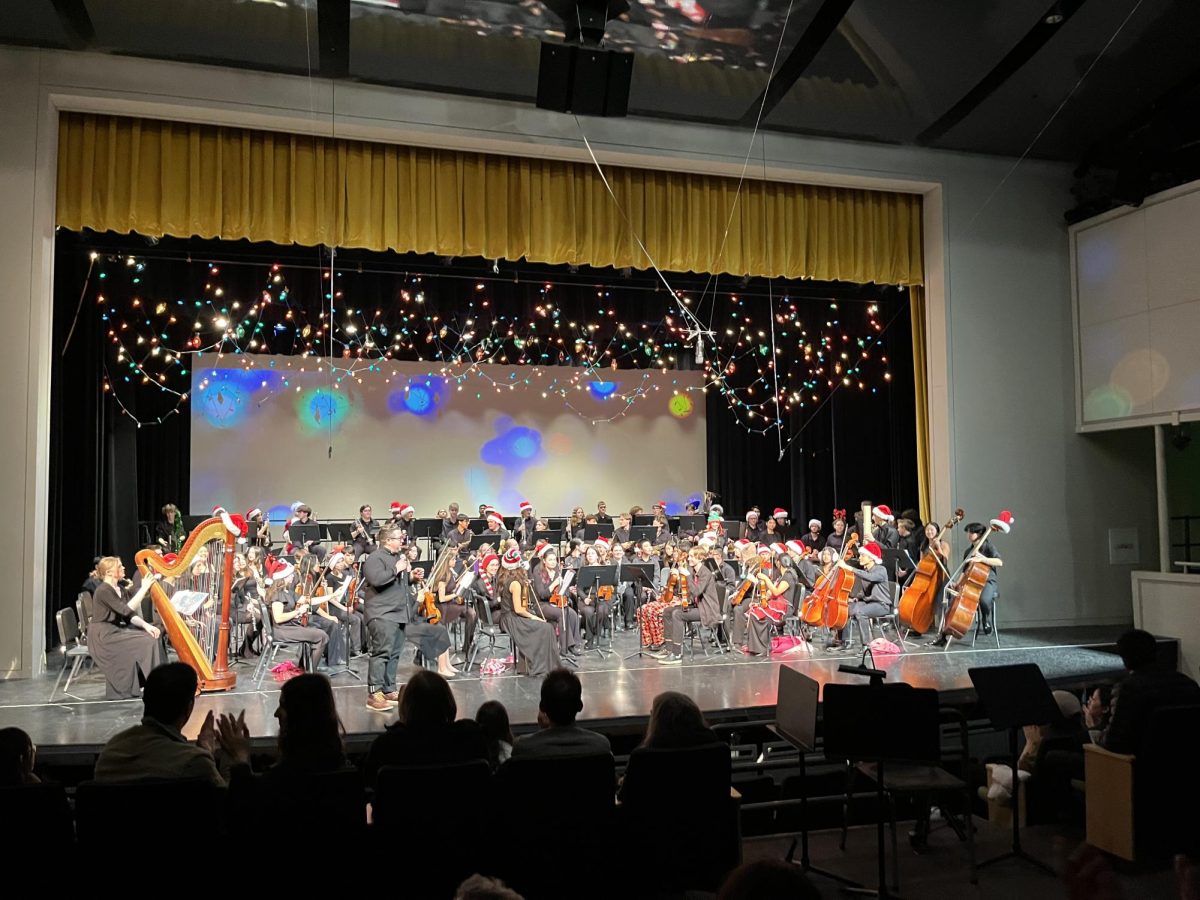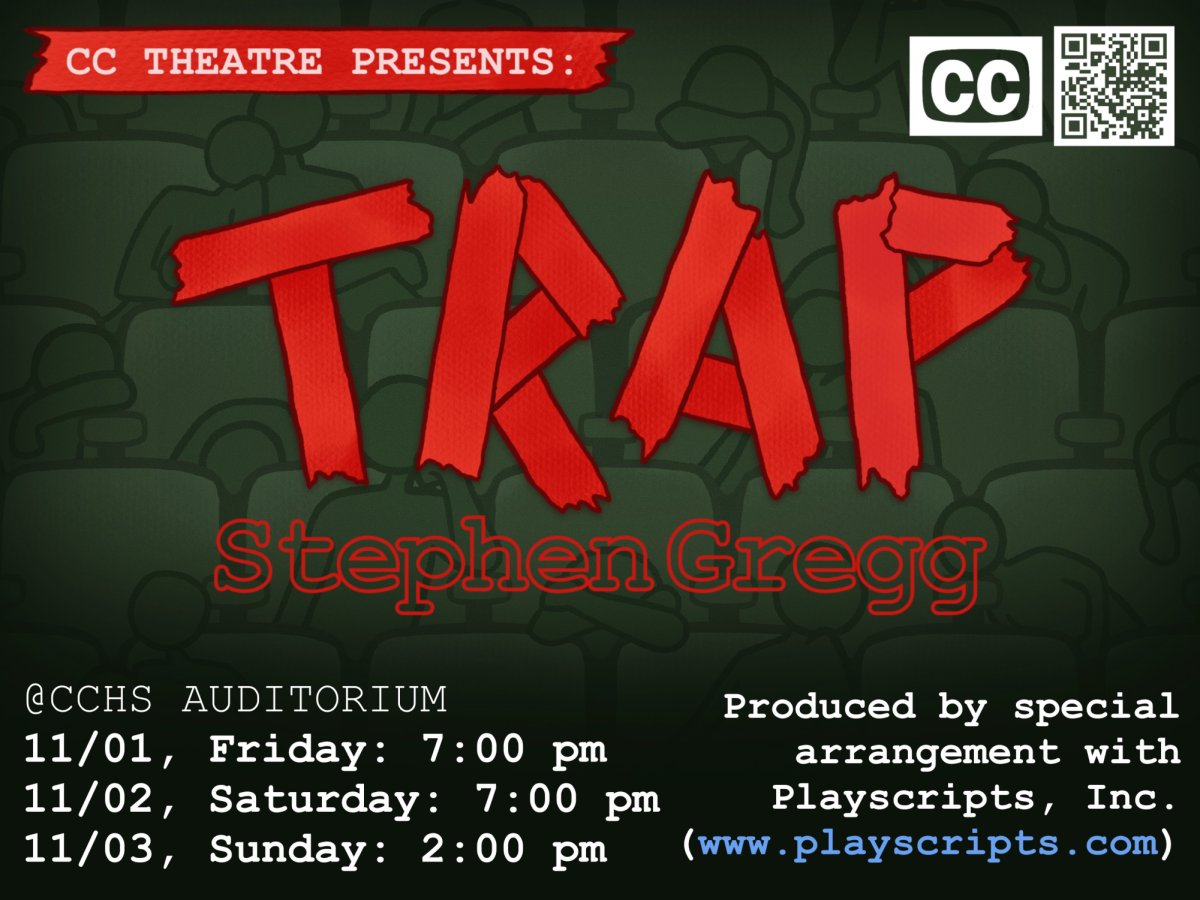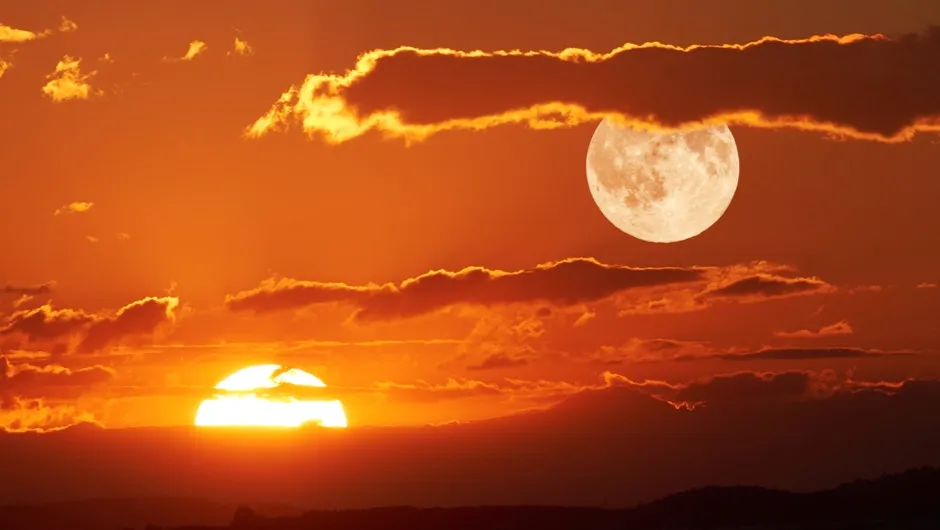Last Monday, April 8th, a total solar eclipse passed over the country, causing the sky to darken into an eerie twilight. As the sun became obscured by the moon and the temperature dropped, millions of people across the nation gathered to take a glimpse at the sky (hopefully through eclipse-viewing glasses!). To view the rare phenomenon, many people even traveled to areas in the path of 100% totality, including students and faculty at Concord-Carlisle High School! While we could view the eclipse with over 90% totality at CCHS, a three-hour drive to Vermont would provide the unparalleled experience of witnessing a total solar eclipse. Thanks to the 9th Grade Academy’s careful planning and persistence, 215 9th-grade students and 15 faculty and chaperones were successfully brought to Lyndon State College, a local college located in rural Vermont, to learn about and view the total solar eclipse.

To get to Lyndon State College, the students and faculty were split into five buses. However, the journey up was not easy. Mr. Pavlik, the visionary of the expedition, remarks that it “took six and a half hours” to get everyone to the campus. He recalls that “the roads were overwhelmed” and there were “so many people going up.” He believes the reason why was that it was “cloudy in places in New York” so many people “went east for better weather.” He admits, “There was a period where we thought we wouldn’t make it,” so “once we got in the path of totality, people relaxed.” Luckily, all 230 people on the trip made it to Lyndon State College on time.
Mr. Pavlik says that even at Lyndon State College, there were “several thousand people on the campus,” all hoping to gain a once-in-a-lifetime experience and memory. The CCHS crew went straight to the soccer field, which provided a clear view of the sky above. Mrs. Ray, a 9th-grade English teacher who also went on the trip, recalls, “The field was packed with people from all over. It attracted so many people… all looking up with our futuristic-looking glasses, mesmerized by the event.” Joanna Stearns (Class of ‘27) says, “I thought it was even cooler that we went to a specific place so that we could see complete totality, and that so many people were traveling so far just to see a ‘once in a lifetime’ thing that occurs for only 3 mins.”
Every minute, a bigger bite was taken out of the sun. The excitement was contagious, spreading to everything as they eagerly waited in anticipation for the moment of totality. Joanna Stearns (Class of ‘27) says, “The moments before the eclipse were probably the coolest because of the sudden darkness we kept on getting and the strange shadows that appeared.” Mrs. Ray reflects, “What was almost as magnificent as seeing the eclipse, although nothing can truly compare, were those moments of anticipation on the field. The world seemed to surround us in an eerie yellow hue as we began to approach totality. It brought out what felt like deep instinctual feelings of concern that something wasn’t right in the world, that something was coming…”


“Epic,” “breathtaking,” and “unearthly” were the words Mr. Pavlik, Mrs. Ray, and Nina Capello (Class of ‘27) used to describe the moment of totality, where the sun was completely hidden by the moon. Everyone could finally take off their glasses and witness the eclipse cast a shadow on the world, leaving behind a halo of light around the moon. The beautiful sunset framed the darkened sky, and stars appeared in the sky. Mr. Pavlik describes, “[Hitting totality] was an experience I’ll never forget; it was like watching a portal opening up in the sky.” He recalls, “The light around the sun… the pure white blue beautiful light at totality was just incredible.” Alyssa Finizio (Class of ‘27) explains, “It was like there was a hole of darkness with a corona of light coming out from behind it.”
Students agree that the eclipse was beautiful and unlike anything they’d ever seen before. Sofia Foster (Class of ‘27) reflects, “The eclipse was extremely cool. When you looked to either side of you, you could see light showing how small the path of totality really was. In addition, you could see one very bright star or planet which was incredible to see since you don’t usually see the sun and a star together. The coolest part was the shadow bands/ripples that appeared on the ground making it look like the reflections of water but were really coming from the sun!” Ziyao Ma (Class of ‘27) says, “It was impressive to see the sun hidden behind the moon.” Maya Jaffe (Class of ‘27) states, “The eclipse was gorgeous, the most beautiful natural thing I’ve ever seen.”
A few students also shared their thoughts on what the eclipse reminded them of. Grayson Alloway (Class of ‘27) shares, “[Seeing the eclipse] was like seeing a black hole with the event horizon around it!” Iliana Benson (Class of ‘27) describes the eclipse as “something out of an apocalypse.”

The energy of everyone watching the eclipse was unmatched. Mr. Pavlik says, “Everyone was cheering and yelling ‘oh my god.’” Mrs. Ray states, “Honestly, the best part was being able to witness this event with my students and my colleagues, especially getting a glimpse of it through the eyes of many excited Science teachers. Mr. Pavlik was in his element, to say the least. We all knew how much this trip had been something he’d been hoping would happen for years, and here we were, finally watching it together. His energy and excitement were infectious as we gathered around him and the eclipse.” Mr. Pavlik continues, “The world changes. There’s nothing like it, it’s really unique,” and, “It definitely lived up to my expectations.”
After two or three hours of marveling at the sky in rural Vermont, it was time for the journey back to CCHS. No amount of planning could have predicted the struggle that would come next. Mr. Pavlik simply states, “On the way home, we sat in the biggest traffic jam in the history of New England.”

Due to the rush of travel that the solar eclipse brought to Vermont, the roads to get back to CCHS were even more congested than they were on the way up. The large buses made it especially difficult to get back quickly. Mr. Pavlik says that at one point, “I think we [traveled] six miles in five hours.” It was a real challenge to spend such a long time on a bus. Rhea Gambhir (Class of ‘27) admits, “Honestly the most memorable part of the trip was the long bus rides.”
However, the 9th-grade students found unique ways to cope with the seemingly neverending overnight bus ride. Some students hosted a dance party and DJ’d, while others read books over the loud music. It was definitely a night to remember. Zoe Gryniewicz (Class of ‘27) reflects, “The most memorable part of the field trip is the bus ride since that was more than 90% of the trip. Also, the party we had on the bus. My bus played music loudly and flashed the lights and we all sang and some people jumped up and down shaking the bus.”
Mr. Pavlik estimates that it took “ten and a half to twelve and a half hours to get home,” with most students finally arriving at CCHS from 3 to 5:30 a.m. in the morning, just a few hours before school opened for the next school day. Vivian Mulvany (Class of ‘27) exclaims, “It was absolutely painful being on a bus for 14 hours till 5 a.m.!” Sofia Foster (Class of ‘27) shares, “I was on a 5 a.m. bus, and the whole time back the bus was joking that we would be late to first period at this rate and we kept repeating the joke because it kept becoming more and more real.”
Students have mixed opinions about whether the trip was worth it or not. Alyssa Finizio (Class of ‘27) says, “I actually really liked the trip and if I had the option to do it again, I think I would. I don’t think people should be angry because [the traffic] wasn’t under any one person’s control and it was all in good interest . . . I actually thought it was really fun, but that might be because I’m used to long car rides.” Meanwhile, Grayson Alloway (Class of ‘27) says, “In my opinion, it was not worth the 13 hours of torture for 3 minutes of beauty.” Mia Kasparian (Class of ‘27) agrees: “The eclipse itself was really cool to look at and experience, but I think if I knew that it was going to be that long of a drive I would not have gone.”
Mr. Pavlik explains that his mission as a Planet Earth teacher is to “share the world.” He hopes that despite the long and difficult bus ride, the expedition is “something [the students] will remember when they graduate.” Mrs. Ray agrees, “Even as an adult, I can still recall a trip that my 9th grade class took up to New Hampshire. Being able to have opportunities to make those long-lasting memories together with teachers and peers outside of the classroom is something I wanted to provide for my students, too. I definitely don’t think they will be forgetting this trip any time soon!”




